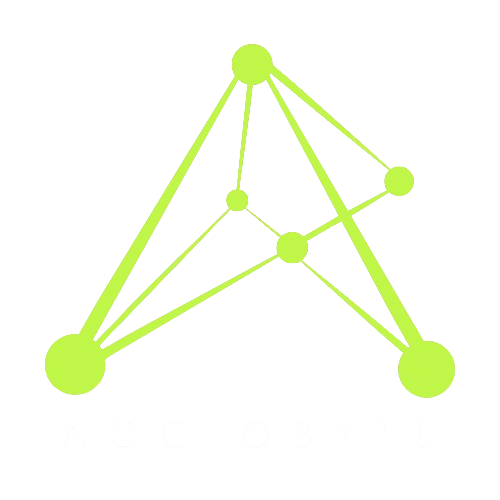















Blockchain Beyond Cryptocurrency - Real-World Applications
Introduction: The Evolution of Blockchain Technology
When most people hear the term “blockchain,” their minds immediately associate it with Bitcoin and other cryptocurrencies. However, blockchain technology extends far beyond digital currencies and has evolved into a powerful tool with real-world applications across various industries. As a decentralized and secure digital ledger system, blockchain has the potential to revolutionize supply chains, finance, healthcare, real estate, and even government operations. Businesses worldwide are recognizing the immense benefits of blockchain, such as enhanced security, transparency, and efficiency, making it one of the most transformative technologies of the 21st century.
Understanding Blockchain: How It Works and Why It Matters
Blockchain is a decentralized, distributed ledger that records transactions across multiple computers in a secure, immutable, and transparent manner. Unlike traditional databases that rely on a central authority, blockchain operates on a peer-to-peer network where data is stored in blocks, which are then linked together to form a chain. Each block contains a timestamp, transaction data, and a cryptographic hash of the previous block, ensuring that once information is added, it cannot be altered or deleted. This level of security and transparency makes blockchain an ideal solution for industries that require trust, accountability, and tamper-proof record-keeping.
The Role of Blockchain in Supply Chain Management
Supply chain management is one of the most promising areas where blockchain is making a significant impact. Traditional supply chains often face challenges related to inefficiencies, fraud, and lack of visibility. Blockchain technology provides end-to-end traceability by enabling companies to track goods and verify their authenticity in real time. By recording each transaction on a blockchain, businesses can ensure that products move through the supply chain without alterations, reducing the risk of counterfeit goods and fraudulent activities. Companies like IBM and Walmart are already leveraging blockchain to enhance food safety by tracking products from farm to shelf, ensuring transparency and quality control.
Blockchain`s Disruptive Impact on Financial Services
The financial sector is another industry that has embraced blockchain technology beyond cryptocurrencies. Blockchain is streamlining cross-border payments, reducing transaction costs, and eliminating the need for intermediaries such as banks and clearinghouses. Smart contracts, which are self-executing contracts with predefined conditions, are revolutionizing loan processing, insurance claims, and financial settlements by automating processes and reducing human errors. Decentralized finance (DeFi) platforms are leveraging blockchain to provide users with access to lending, borrowing, and investing opportunities without the need for traditional financial institutions. These innovations are making financial services more inclusive, especially for underbanked populations worldwide.
Blockchain in Healthcare: Enhancing Data Security and Patient Privacy
The healthcare industry generates vast amounts of sensitive patient data, making security and privacy top priorities. Blockchain offers a decentralized and tamper-proof system for storing and sharing medical records, ensuring that patient data remains secure and accessible only to authorized parties. With blockchain, healthcare providers can streamline data sharing, reduce administrative costs, and prevent fraud in medical billing. Furthermore, blockchain-based solutions enable secure clinical trials by maintaining transparent records of research data, preventing manipulation, and ensuring the integrity of scientific findings. As healthcare systems worldwide adopt digital transformation, blockchain is playing a crucial role in securing patient information and improving overall healthcare efficiency.
Transforming the Real Estate Industry with Blockchain
Real estate transactions are often complex, involving multiple intermediaries, lengthy paperwork, and the risk of fraud. Blockchain technology simplifies property transactions by providing a transparent, decentralized system for recording ownership, verifying identities, and executing smart contracts. Tokenization of real estate assets allows fractional ownership, enabling more people to invest in properties without the need for large capital investments. By eliminating the need for traditional brokers and legal intermediaries, blockchain reduces transaction costs and speeds up the buying and selling process. Countries like Sweden and the United Arab Emirates are already testing blockchain-based land registries to enhance transparency and prevent fraudulent property claims.
The Role of Blockchain in Government and Public Administration
Governments worldwide are exploring blockchain technology to improve transparency, efficiency, and security in public administration. One of the most promising applications of blockchain in governance is digital identity management, where citizens can securely store and verify their identity credentials without relying on centralized databases that are vulnerable to breaches. Blockchain is also being used for secure voting systems, ensuring that elections remain tamper-proof and free from manipulation. Additionally, blockchain-based tax collection and social welfare distribution systems are improving efficiency and reducing corruption by ensuring that funds reach their intended recipients without intermediaries.
Enhancing Cybersecurity with Blockchain Technology
Cybersecurity threats continue to rise as hackers develop more sophisticated methods to breach centralized systems. Blockchain enhances cybersecurity by decentralizing data storage and using cryptographic encryption to protect sensitive information. With blockchain, businesses can create secure authentication protocols that prevent unauthorized access and eliminate the risk of identity theft. Decentralized storage solutions, such as blockchain-based cloud storage, distribute data across multiple nodes, making it nearly impossible for hackers to compromise an entire system. As cybersecurity threats become more complex, blockchain provides a robust solution for securing digital assets and protecting sensitive information.
The Future of Blockchain in Education and Academic Verification
The education sector is also benefiting from blockchain technology, particularly in the verification of academic credentials. Fraudulent degrees and fake certifications have become a growing concern, making it difficult for employers to verify an individual`s educational background. Blockchain provides a decentralized and immutable record of academic achievements, ensuring that certificates and diplomas cannot be tampered with or forged. Universities and institutions can issue digital diplomas on blockchain networks, allowing students to share their credentials securely with potential employers. This innovation reduces the administrative burden of verifying qualifications and increases trust in academic credentials worldwide.
Environmental Sustainability and Blockchain`s Role in Green Initiatives
Sustainability is a major global concern, and blockchain is playing a crucial role in promoting environmentally friendly practices. Blockchain enables transparent tracking of carbon emissions, allowing companies to monitor their carbon footprint and ensure compliance with environmental regulations. Renewable energy projects are using blockchain to facilitate peer-to-peer energy trading, where individuals can buy and sell excess energy without relying on centralized power grids. Additionally, blockchain-based supply chain solutions are improving transparency in sustainable sourcing, ensuring that products are ethically and environmentally responsible. As industries strive to become more sustainable, blockchain technology is emerging as a key tool in achieving environmental goals.
Challenges and Barriers to Blockchain Adoption
Despite its numerous advantages, blockchain technology still faces several challenges that hinder widespread adoption. One of the biggest hurdles is scalability, as most blockchain networks struggle with processing high transaction volumes efficiently. Energy consumption is another concern, especially with proof-of-work (PoW) consensus mechanisms, which require significant computational power. Additionally, regulatory uncertainty and lack of standardization across industries create barriers to adoption, making it difficult for businesses to integrate blockchain solutions seamlessly. However, ongoing advancements in blockchain technology, such as proof-of-stake (PoS) and layer 2 scaling solutions, are addressing these challenges and paving the way for broader adoption.
Conclusion: The Expanding Horizon of Blockchain Applications
Blockchain technology is no longer confined to cryptocurrency transactions; it has evolved into a transformative force across multiple industries. From revolutionizing supply chains and financial services to enhancing healthcare security and reshaping real estate transactions, blockchain is proving its value beyond digital assets. As businesses and governments continue to explore blockchain`s potential, the technology will play an even greater role in shaping the future of digital transactions, data security, and decentralized systems. With continuous innovation and regulatory advancements, blockchain is set to become a fundamental building block of a more secure, transparent, and efficient digital economy.
